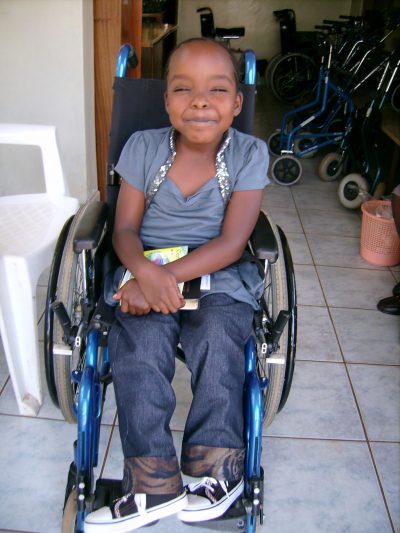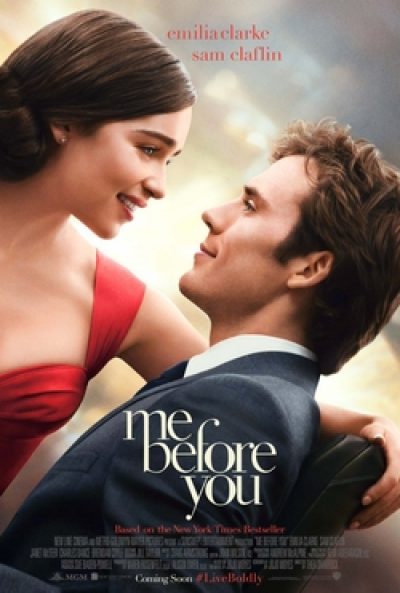Hooray for Generosity (Ros' Blog)

I was recently at a meeting of another charity I’m associated with. We had met principally to pray, but before we did, the Director asked us to brainstorm some ideas about publicity and fundraising. We did come up with lots of ideas, and some of them may even have been usable. But there was something more interesting that came out of our deliberations.
We found ourselves discussing the difference between donating and generosity. Donating can come from a sense of duty, a feeling of guilt or even a desire to avoid looking stingy and appear big-hearted. But generosity is something else altogether. It is a grace that reflects the heart of God, and it brings blessing and happiness as much to the giver as to the recipient. You don’t have to be a Christian to be generous, and you don’t have to know God for your generosity to be a blessing to yourself, because God is in the business of blessing those who reflect his heart, whether or not they know Him.
This is why we love our supporters here at Through the Roof – whether they give regularly or occasionally, whether they support our holidays or sponsor a wheelchair, we know they are motivated by a godly generosity which brings an added dimension of blessing to our receiving as well as to their giving.
When our wheelchair sponsors receive their certificates, each one includes a picture of a person who has received a wheelchair, made possible by that giver’s generosity. When the sponsor opens the envelope and sees the photograph of a smiling person whose life has just been transformed by the gift of a wheelchair and a Bible in their own language, the blessing comes full circle, and their own generosity brings them happiness.
Generosity is a blessing because it is a godly characteristic. Both those who know God and those who don’t believe in Him, when they act out of generosity, reflect the character of the God who made them. But for Christians, there is an added dimension. Jesus said, “Truly I tell you, whatever you did for one of the least of these brothers and sisters of mine, you did for me.” When a wheelchair sponsor looks at the smiling face on the certificate, they can be sure that the same smile is on the face of Christ, for what they have done to this person in a far away country whose life has previously been unimaginably difficult, they have done to Him.
So I would like to say a big shout out for all our wonderful supporters, and a big hallelujah to God for the generosity out of which they give to us.
Front Line or Civilian? (Ros' Blog)

By Mandy Edwards
Back in early 2015 Mandy Edwards wrote this blog for us. Now she’s back again with more insights, and I am enjoying following the journey that God is taking her on. Mandy writes:
I had a mind-blowing revelation last night. Boom! Just as my eyes finally closed after a particularly challenging day it hit me hard. I live in the aftermath of a serious spinal injury 6 years ago so my idea of a busy day would be very different than most, as I was registered disabled with care needs after the accident. My son and canine partner still live with me and give me so much support but day-to-day life remains a challenge. I can’t work yet but am trying to rebuild my mobility and grab back lost health so I can one day. It’s exhausting as everything takes so much longer and I am often hampered by frustration. I’ve made so much progress since my wheelchair days but chronic pain is still an on-going issue. As a result I usually sleep badly and tonight I’d been grateful when my eyes finally began to droop.
As the vision flooded my mind my eyes flew wide open, and I felt alive for the first time in 6 years. I had finally got it! I could have power. I could have authority but it wouldn’t be mine! It would be God’s. My vessel was broken and I was officially feeble but that was the point wasn’t it? A cracked vessel may be damaged but it’s those very cracks that allow the light to shine through! That’s why God has often chosen the damaged, rejected and scorned.
But God chose the foolish things of the world to shame the wise; God chose the weak things of the world to shame the strong. (1 Corinthians 1. 27)
In my vision, to access His power I’d got to know Him better. To get to know Him better I’d immersed myself in His Word. The Bible wasn’t just a 2000-year-old historical document. It was a Living document, pulsing with His power! The purpose of reading it was to encounter Him in its pages. So I began a campaign of study, rising an hour and a half earlier every day so I could fit it in before my physical challenges distracted me. As that vision faded I’d leant across my bed and grabbed my Bible to find the right section. There it was.
For our struggle is not against flesh and blood, but against the rulers, against the authorities, against the powers of this dark world and against the spiritual forces of evil in the heavenly realms. (Ephesians 6. 12)
We are in a Holy War! We are all soldiers in a battle but it isn’t the usual kind of battle. We are fighting against unseen but very powerful forces. Satan, the Prince of this world, and his foot soldiers are everywhere, both on earth and in the supernatural realm, tormenting us with feelings of anger, hate, greed, dissatisfaction, lust, doubt, despair, jealousy and frustration and leading us astray through counterfeit spirituality. This is real and it finally answered that question that had tormented me since my accident. Why did a loving God allow suffering?
The army is an organisation full of soldiers from the Private to the Field Marshall. It’s the foot soldier that is most likely to get wounded, and it’s the brigadiers and commanders who make critical decisions about where and when the platoons and companies will be mobilised. They are the brains of the operation and the privates are the marching feet, the ones most likely to be shot at, blown up, killed or maimed. Yet God’s army is very different. He did not strategize behind the lines and send out His foot soldiers. He sent out His only son Jesus to become human, to don his private’s uniform and go out in front of us as a foot soldier. Jesus Christ took the first fatal hit and showed us that physical death is not the end and not to be feared. He never promised us that we wouldn’t suffer but He did promise us something far more precious. He promised us that he would go ahead of us and prepare a place for us in heaven so that we could live with Him for all eternity.
And if I go and prepare a place for you, I will come back and take you to be with me that you also may be where I am. (John14. 3)
The more we suffer in life the closer we draw to Christ’s suffering and to Christ Himself. If we are living happy, uncomplicated lives, apparently free from suffering and pain then we miss out on the experience Paul called 'the fellowship of His sufferings'.
Some of us fight the fight but then become immobilised by pain, anger, fear, disease or disability (I’m a good example of this) and become bitter when our battle wounds disrupt our lives. Yet history has shown us that in God’s hands battle wounds can become powerful weapons. Some of His casualties have gone on to become powerful Generals in this Holy war, recruiting thousands for Him. Joni Eareckson Tada became paraplegic at 17. Now she is an evangelical speaker, author and founder of Joni and Friends, a charity that provides wheelchairs across the third world for those with disabilities. Christine Caine, a child abuse survivor, founded the A21 campaign which rescues victims of sex trafficking and fights to abolish it in south-eastern Europe. John Ramirez had an impoverished childhood, became a high ranking satanic warlord and recruited thousands for Satan. He is now an International evangelist, author and the founder of John Ramirez ministries. Cracked vessels who have shone far and wide for Christ. No soldier who signs a contract with the army signs that contract conditionally, provided they don’t get hurt! No Field Marshall can offer that condition. So as Christians we need to be prepared to sign our contracts unconditionally. We won’t be offered a pain free life but we can be certain that we will never die.
To be invincible we need to stand together, accept each other ‘warts and all’ and work together with one vision. If we fight amongst ourselves we will lose the war. We need to stand united. We are the body of Christ and we all have different roles but like any human body we all need to be functional for the body to thrive. We all know that it takes just one hormone, enzyme or blood cell level to be out of sync for an entire body to become really sick. We must not exclude anyone or discourage their contributions, however vulnerable or different they seem to us. We are in this war together and all of us have a part to play. It is not for us to judge another’s worthiness, that’s up to God. Whenever I get stuck on this point (someone irritates or frustrates me) I just imagine how I must appear to God right now. Standing there all dirty and scuffed and covered in muck complaining about one of His other children! Strange how that feeling of irritation magically disappears when I think this way. We also need to make sure that all our soldiers are spiritually prepared and protected in battle.
We need God’s armour of honesty, integrity, courage through the Gospel of peace, right mind set, unshakable faith and a daily focus on the Word of God.
Stand firm then, with the belt of truth buckled around your waist, with the breastplate of righteousness in place, and with your feet fitted with the readiness that comes from the gospel of peace. In addition to all this, take up the shield of faith, with which you can extinguish all the flaming arrows of the evil one. Take the helmet of salvation and the sword of the Spirit, which is the word of God. (Ephesians 6. 14-17)
For years I had experienced both suffering and a passion for Christ’s love but I didn’t study His Word every day. I didn’t know Christ’s personality because I didn’t take the time to become His personal friend. Many of us will turn to our family and closest friends for help when we feel troubled and accept their advice even when we would rather do something different. Why do we do this? Because we have lived with them, spent quality time with them, and know that they ‘get’ the real us. Christ knows each of us intimately but can we say the same the same about Him? I went to church religiously and listened to the Word eagerly but only got a snapshot view. How could I understand Christ if I wasn’t willing to spend the time every day to “get Him” too? On my Christian journey I have learnt one important fact by trial and error. The Word of God is as important to us as water and food. Without it we die. But if Christ is our Field Marshall we can never die.
Me Before You (Ros' Blog)

There are many things that Christians may disagree about, some of them peripheral and others perhaps more foundational. But one thing I think all of us can agree on is that the Bible gives a clear picture of every human being as made in the image of God and being of infinite value because of being chosen, created and loved by God. As a result, no life is insignificant, and every human being matters to the moment when they draw their last breath.
I am thinking about this at present because I have just come back from seeing Me Before You, and honestly, it is hard to know where to start analysing all that is wrong with this film. It typifies the anxiety of the 'worried well' that disability must be unendurable – something most disabled people would strongly disagree with. The story is of Will, a young man paralysed in a road accident, who falls in love with his carer/companion, Louise, but nevertheless opts for suicide, handily leaving her a small fortune.
Perhaps one of the best ways I can convey this is to ask you to imagine a film in which a black person living in a largely white community (and played by a white actor 'blacking up') concludes that his life is so unlike that of the white people around him that he would be better off dead, and obligingly commits suicide, leaving a large amount of money to someone who is thus conveniently enabled to leave a life of poverty and restriction in order to better herself. Of course Hollywood would never make such a film – there would be outrage at such dehumanising and belittling of someone for their ethnicity, and quite rightly too.
But apparently Hollywood has no such qualms about a non-disabled actor 'cripping up' to tell us that if you lose the physical abilities you once had, nothing – not even the vibrant and devoted love of a person full of life and zest – can ever make your life worth living again. While this is not seen as acceptable based on ethnicity, gender, sexual orientation or any other trait, disability is placed into another category and it is apparently tolerable to diminish the value of disabled people’s lives to the point where they should consider themselves better off dead.
Why, in the twenty-first century, is such an idea even countenanced? The messages of this film seem to be:
- If your current boyfriend is enough of a selfish pig you might even fall for a cripple
- Even the strongest of human spirits is not indomitable enough to weather a terrible storm and wait for life to feel better again
- Needing assistance with bodily functions robs you of all your human dignity and leaves you with no hope but to find 'dignity in dying'
And that’s the key to the message of this film. There is a highly lucrative business in persuading people to believe that assisted dying affords more dignity than assisted living. Of course it is far cheaper for health insurers in the US and the NHS in the UK to kill someone than to provide for their lifelong care. But is that any reason to keep pushing this message into the public consciousness? The teaching of the Bible and the example of Jesus tell us that no price is too great to put on a human life.
But there is a money-making racket around the euthanasia industry; it is scandalous, but a lot of money is being made by persuading people that they are a burden and that they have no future. This film draws a veil over the realities of assisted dying. It does not show the moment of administration of the lethal dose, nor of Will’s death. There may be good reason for this – statistics show that 23% of assisted suicides and 9% of cases of euthanasia experience complications including failure to die, failure to induce coma, waking up after coma or taking longer than expected to die. One study in the Netherlands, where assisted suicide and euthanasia are legal, showed that 18% of assisted suicides turn into euthanasia cases because the patient fails to die and the doctor has to administer a lethal injection.
No doubt this is in part why, as I am writing, it has just been announced that 63% of doctors in the UK have voted against a motion for the BMA to abandon its traditional opposition to assisted dying. The Netherlands is a salutary example, because increasingly, its elderly patients have had to take to wearing badges saying, 'Doctor, please don’t kill me.' Even here in the UK, I am regularly asked if I would like 'Do Not Resuscitate' written on my healthy, young, disabled daughter’s medical notes, something no one ever asks about her non-disabled sisters. (If you haven’t already signed my petition against this, you can do so here.)
I am not seeking to diminish the intense grief of someone who has led an active life and suddenly becomes disabled. And I know at first hand the grief of a parent whose child becomes disabled – enormous enough when it happens, as in my daughter’s case, at only 9 weeks old, and probably heightened all the more when the child has led an active, athletic life before becoming disabled. But that is only the beginning of a long story, and this film tries to make it the end.
When I was a teacher euthanasia was one of the topics I had to teach. I used to show my classes a Channel 4 documentary about the battle of Diane Pretty to have a suicide lawfully assisted by her husband – a battle which went all the way to the European Court of Human Rights and was defeated at every stage by wise judges who could see, far more than this poor woman who was being manipulated by a pro-euthanasia organisation for its own ends, the far-reaching, unintended consequences that such a ruling would have.
I used to point out to my classes the many fallacies in the documentary – for example, when the care staff performed for the camera a soiled pad change and the narrator explained how terrible it was to have lost all human dignity in this way, I explained to my students that for many years I’ve had carers coming in to assist with this task for someone I care for, and we all make light of it and carry it out with cheerfulness and humour. The sense of loss of dignity is not a fact but an attitude, and one that, in Diane Pretty’s case, was being stoked up to the maximum by a disingenuous organisation campaigning for euthanasia. Shockingly, her mother said, “If it was an animal, you would have it put down” – but the point was that Diane Pretty was not an animal but a precious human being whose life was greatly enriched by the faithful love of a devoted husband and family.
Some things in the film Me Before You are just plain silly – when Louise peels back Will’s bed sheets, it reveals an improbably muscular torso and arms for someone who has been a quadriplegic for two years. Miraculously, Will’s bodily functions suspend themselves unless his male carer is present, so the love of his life never has to deal with a bag of urine or a soiled pad. And, having repeatedly nursed my own quadriparetic daughter through many a bout of pneumonia, to see him lying in hospital, at death’s door from pneumonia, his skin a rudely healthy pink, made me want to laugh out loud, and underlined the fact that this is a film made by non-disabled people, for non-disabled people, both of whom have no idea of the real magnitude of the problems presented by severe disability, nor of the heights of triumph of which the human spirit is capable.
As Christians we have to counter this terrible message that disabled lives are disposable. We have to affirm to our disabled friends and loved ones that their lives are significant, worthwhile and treasured. And perhaps we should be pointing out to friends who go to see this film that if someone is suicidal, he isn’t suffering from disability, he’s suffering from depression, and the solution is not to kill him, but to treat his mental health.
If you want to see an antidote to the terrible message of this film, why not take a look at Through the Roof’s video See The Possibility, and if you like its message, you could share it via social media so people can see that Me Before You doesn’t have the last word.
(Image is the theatrical release poster for the movie)

